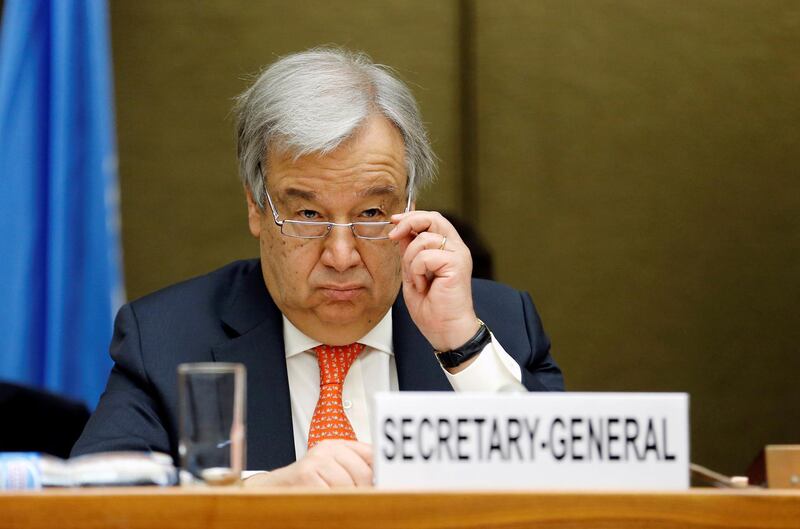Some components from five missiles fired at Saudi Arabia by Yemen's Houthi rebels were manufactured in Iran but UN officials are unable to determine when they were sent to Yemen, according to a confidential UN report.
Debris from the missiles fired since July 2017 "share key design features with a known type of missile manufactured" by Iran, UN Secretary General Antonio Guterres told the Security Council in the 14-page report seen by AFP.
The findings were contained in a report on the implementation of a 2015 resolution that endorsed the Iran nuclear deal, now in danger of collapse after President Donald Trump's announcement of a US withdrawal from the agreement.
The report, sent to the council on Tuesday, added that "some component parts of the debris were manufactured in the Islamic Republic of Iran" but it remained unclear whether the transfer was in violation of UN restrictions.
UN officials were "unable to determine when such missiles, parts thereof or related technology may have been transferred from" Iran, it said.
The findings were less conclusive that those of a separate UN panel of experts that reported in January that Iran was in violation of the arms embargo on Yemen for failing to block the missile supplies.
_______________
Read more:
[ Is Iran using its missiles as 'a psychological tool' after US nuclear pullout? ]
[ Yemen peace plan calls for ceasefire and Houthis abandoning missiles ]
_______________
The latest report could deal a setback to the United States' efforts to get the Security Council to act against Iran over illegal arms transfers to Yemen and elsewhere in the region.
Iran denies arming the Houthis despite accusations from the United States and Saudi Arabia that missiles fired at Riyadh and other Saudi cities were Iranian-made.
Earlier this year, Russia questioned the findings of the panel and in February vetoed a resolution that would have pressured Iran over the supply of missiles to the Houthis.
Moscow argues that Yemen is awash in weapons and that many of them were delivered at a time when neither Iran or Yemen were under an arms embargo.
Mr Guterres said that UN officials had also examined explosives seized by Bahrain from a vessel in 2016 and were "confident" that some of the material was Iranian-made.
But again they found no indication about when the items were shipped and were unable to make a determination of a violation.
The Security Council is scheduled to discuss the report on June 27.





